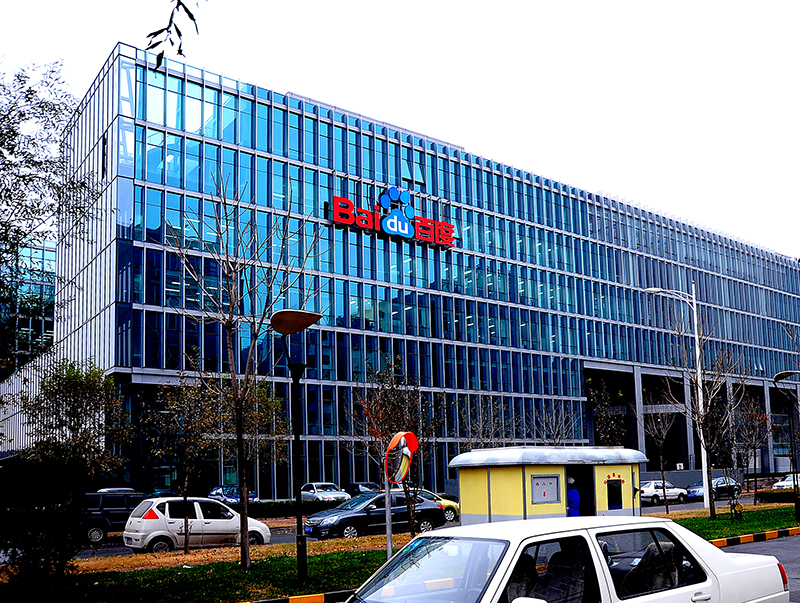Should Baidu be your AI and machine learning platform?


Baidu, often called the "Google of China," is rarely mentioned outside of technology circles in the US, but it's a search-engine giant with 2015 revenues of $10.2 billion. The Beijing, China-based company was founded in 2000 by Robin Li, currently Baidu's chairman and CEO. Baidu stepped up its research and development investment in 2015 to $1.6 billion, a 46 percent increase from 2014, with an increased focus on artificial intelligence.
"AI is very much baked into the DNA of the company. Recent advances of AI have accelerated our progress and the impact that AI can have," said Andrew Ng, vice president and chief scientist at Baidu.
Ng runs Baidu Research, which handles R&D for the company and is based in Sunnyvale, Calif. Previously, Ng was the founding lead of the Google Brain team and former director of the Stanford University AI laboratory.
There are three research labs under the Baidu Research umbrella, focusing on AI, big data and deep learning. The AI team has 1,300 employees. Baidu's AI platform is Baidu Brain, while the machine learning platform, PaddlePaddle, is open source. DeepBench is Baidu's open-source benchmarking tool for evaluating deep learning performance across platforms.
"Our AI infrastructure has enabled us to apply technologies like deep learning, image recognition and speech recognition into Baidu's business lines and many products, including our search engine service, autonomous driving, financial services, etcetera," Ng said.
What Baidu does right
One of the company's strengths is its experience in deep learning and speech recognition, along with the "sheer quantity of data" that it has as a search engine, which it can then use for analysis, Ng said.
"Badiu is one of a small handful of global companies that has access to [a] large quantity of data. There are only a few companies with access to this tremendous amount of data. The leading edge of AI today is shifting to high-performance computing," Ng said, explaining that Baidu was one of the first companies in the world to build a processor for deep learning.
Baidu is a strong player in the AI market and analyst firm Forrester considers it a contender, particularly with its public cloud platform.
"As a PaaS pioneer in China, Baidu Cloud has extended its application services to support more languages and offers most foundational infrastructure services. It also has basic container services and provides analytics services like BI and IoT services with features like device authentication. Baidu Cloud has a strong product roadmap in machine learning and data analytics services to optimize its big data service portfolio, and other IoT services," said Charlie Dai, a Beijing-based analyst for Forrester.
"[In China] Baidu has been considered as one of the three most important internet companies in the past (BAT, Baidu Alibaba, Tencent). In the recent two to three years its business growth has lagged behind the other two," added Dai.
Possible downsides to Baidu
Despite the size of the company and its reputation as a leading consumer technology company in China, it's relatively unknown in the US, outside of those in tech circles. Baidu's lack of presence outside of China is one of its biggest weaknesses, said Patrick Moorhead, president and principal analyst for Moor Insights & Strategy.
The fact that it's not as well known can play a negative role in getting its products to market, added Forrester's Dai: "Baidu has profound knowledge, experience and talents in machine learning area, however it requires better go-to-market strategy to accelerate ecosystem expansion especially in enterprise space."
Recently, there was negative news about Baidu, which affected its reputation in China. "Its services like search and map are well known and being used by the majority of Chinese users. However its brand name has been negatively impacted after a student died following cancer treatment sourced on Baidu search and it was probed by the government," said Dai.
Focus on self-driving cars
Baidu is invested in self-driving cars with its deep learning algorithm, Baidu AutoBrain. In December 2015, it established its Autonomous Driving Unit for research and development of self-driving automobiles. The company began testing autonomous vehicles in January this year, and then, in October, did an open test for the public with more than 200 passengers transported by a fleet of 18 all-electric driverless cars on a 3.16 kilometer route. There are plans to roll out fully autonomous vehicles in 2018 and mass-produce them by 2021.
"Baidu is making substantial progress in driverless cars, aiming at the top level of autonomous car. The technology foundation of Baidu in AI is the key driving factor," said Forrester's Dai.
Baidu partnered with Nvidia to use AI to create a cloud-to-car autonomous car platform for auto manufacturers around the world.
"Nvidia and Baidu have a long history of working together on AI. Using GPUs, Baidu researchers such as Andrew Ng have achieved some of the key breakthroughs that have made the modern AI boom possible. Baidu and Nvidia share a common goal of using AI for the good of society, and we feel we can accomplish more by working together," said Danny Shapiro, senior director of Nvidia's automotive business.
Shelving a project
Sometimes, Baidu starts small before investing too much into the concept. "We often launch a small project to explore new vertical opportunities, and some of them work and some of them don't. There are small projects we tried for six months to a year and we decided it wasn't going to work so we ended the project," Ng said.
One such example occurred last year, when Baidu began exploring AI for self-driving cars and for drones. "At the beginning of last year we weren't ready to make the call on whether it would be self-driving cars or drones that we focused on. Toward the end of last year, it became clear that we wanted to invest heavily in AI for self-driving cars. We shifted everyone from the drone project, which was four people, to self-driving cars. Maybe doing the drone exploration was a mistake, but we decided we wanted to be that heavy on self-driving cars and not on drones, at least for now," Ng said.
Safety and ethics
Safety and ethics are something Baidu takes seriously when it comes to machine learning and AI, because there is no industry that AI will not eventually touch, Ng said.
"I think that AI is a new superpower," Ng said. "AI is the new electricity. Two hundred years ago there was no such thing as electricity. You couldn't talk on phones, there was no electric lighting, you couldn't have a refrigerator. About 100 years ago as we started to build out electricity we saw that transformed not just one industry but industry after industry. We think that AI will similarly transform industry to industry. In that sense it is a superpower. I think that our teams are very thoughtful about what we do and what we don't do with AI. I think some of the fears about AI and killer robots are overblown."
Ng said he believes AI will solve some of the world's problems. For instance, self-driving cars will save millions of lives, having better analysis of healthcare data will save millions of lives, and speech recognition will make people's lives easier.
Ng is optimistic about the future of AI. "All of us still have to do work that doesn't challenge us, that isn't our highest possible calling. I think that AI will relieves all of us from a lot of mental drudgery just as the industrial revolution relieved us from a lot of physical drudgery."